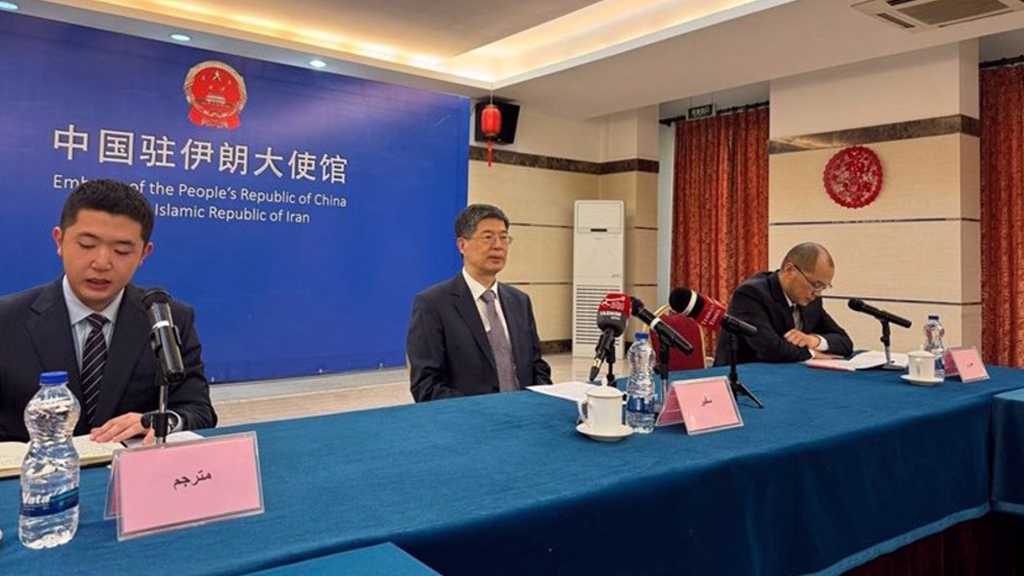S China Sea Ruling: Taiwan Sends Warship ’to Defend Country’s Rights’

Local Editor
A day after an international tribunal ruled against China's claims to islands and undermined Taipei's claims to the South China Sea islands, Taiwan sends its warship "to defend its maritime territory."

On Tuesday, a tribunal in The Hague ruled China has no historic rights in the waterway and sided with the Philippines that had filed the complaint.
It also ruled that Taiwan-controlled Taiping, the largest island in the Spratlys chain, was legally a "rock" that did not give it an exclusive economic zone, undermining Taiwanese claims to waters surrounding the island.
On Wednesday, Taiwanese President Tsai Ing-wen rallied troops on the deck of a frigate, saying the Taiwanese are determined to "defend their country's rights," before the warship headed for Taiwan-administered Taiping island in the Spratly island chain from the southern city of Kaohsiung.
Taiwan's government rejected the ruling as "completely unacceptable," saying it had no legally binding force since the arbitral tribunal did not formally invite Taipei to participate in its proceedings or solicit its views.
"The South China Sea ruling, especially the categorization of Taiping Island, has severely jeopardized our country's rights in the South China Sea islands and their relevant waters," Tsai told soldiers on the deck of ship in footage broadcast by news channels.
"This patrol mission will show Taiwanese people's determination to defend their country's rights," she said, before disembarking from the warship ahead of its departure.
The Taiwanese Defense Ministry vowed to "firmly defend Taiwan's territory and sovereignty" and said there would be no change to Taiwan's claims in the strategic seas because of the ruling.
The ministry said it would continue to send aircraft and ships for patrol missions to the region and remain "highly vigilant" to protect national security.
The development came after Chinese Ambassador to the US Cui Tiankai warned of "conflicts and confrontation" in the South China Sea following the verdict that Beijing's claims to most of the strategically vital waterway had no legal basis.
"It will certainly undermine or weaken the motivation of states to engage in negotiations and consultations for solving their dispute. It will certainly intensify conflicts and even confrontation," he said.
China on Wednesday dismissed as "baseless" the Philippines' claims of sovereignty in the South China Sea, saying the islands are "China's inherent territory".
"The Philippines' territorial claim over part of Nansha Qundao (the Nansha Islands) is groundless from the perspectives of either history or international law," Beijing said in a white paper.
In the new policy paper, China asserted its sovereignty over the islands and their surrounding waters and opposed other countries' "illegal claims and occupation."
The document criticized Manila for violating an agreement with Beijing to settle the disputes through bilateral negotiation, saying Manila "distorted facts and concocted a pack of lies" to push forward the arbitration proceedings.
"The Arbitral Tribunal established at the Philippines' unilateral request has no jurisdiction over relevant submissions, and awards rendered by it are null and void and have no binding force," said the document.
"China's territorial sovereignty and maritime rights and interests in the South China Sea shall under no circumstances be affected by those awards."
While firmly safeguarding its territorial sovereignty and maritime rights and interests, China adheres to the position of settling disputes through negotiation and consultation and managing differences through rules and mechanisms, it added.
China is committed to maintaining peace and stability in the South China Sea with other countries in the region and upholding the freedom of navigation and overflight in the South China Sea enjoyed by other countries under international law, the white paper said.
In the white paper, Beijing urged countries outside this region to respect the efforts in this regard by countries in the region and to play a constructive role in maintaining peace and stability in the South China Sea.
Chinese Vice Foreign Minister Liu Zhenmin said his country has the right to set up an air defense zone in the South China Sea, but this will depend on the level of threats faced.
He, however, said China remained committed to negotiations with the Philippines.
China claims sovereignty over almost the entire South China Sea, which is also claimed in part by Taiwan, Brunei, Vietnam, Malaysia and the Philippines. The waters are believed to sit atop vast reserves of oil and gas.
The dispute has at times drawn in trans-regional countries, particularly the US.
Beijing accuses Washington of meddling in regional issues and deliberately stirring up tensions in the South China Sea.
The US, in turn, accuses China of carrying out what it calls a land reclamation program in the South China Sea by building artificial islands in the disputed areas.
Source: News Agencies, Edited by website team




